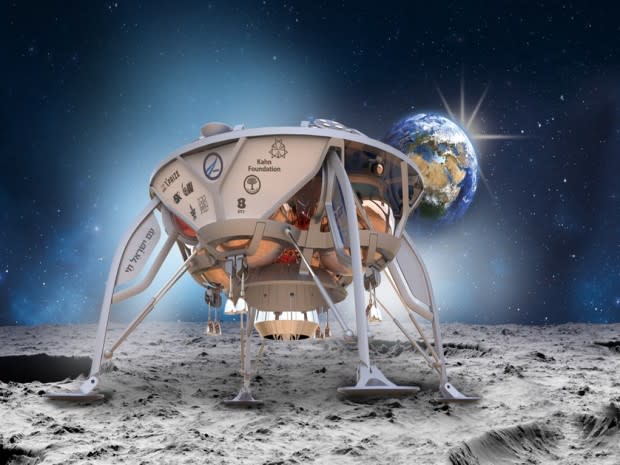Google Lunar X Prize clears five teams for moon race and pays out $1 million

The organizers of the Google Lunar X Prize competition confirmed that five teams have been cleared to go after the $20 million grand prize, and doled out a total of $1 million to all 16 teams that entered.
These five teams previously reported that they had launch contracts for missions to the moon, and that those deals had received the XPRIZE seal of approval:
SpaceIL (Israel), a non-profit organization, has secured a position on a SpaceX Falcon 9 rocket with the assistance of Seattle-based Spaceflight. “Their goal is to make an educational impact and to create an ‘Apollo Effect’ for the next generation in Israel,” XPRIZE said in a news release.
Moon Express (USA) signed a launch contract with Rocket Lab USA for three lunar missions by 2020, including up to two launches this year. The company, which has Seattle-area tech entrepreneur Naveen Jain as a co-founder, aims to become a “FedEx to the moon” and back.
Synergy Moon (International) will turn to one of its team members, Interorbital Systems, to launch its lunar lander and rover using a Neptune 8 rocket. “Synergy Moon is made of up individuals from over 15 countries, with a mission to make manned orbital travel, personal satellite launches and solar system exploration cost-effective and accessible,” XPRIZE said.
Team Indus (India) signed a commercial launch contract aboard the Indian Space Research Organization’s Polar Satellite Launch Vehicle. Team Indus’ spacecraft is designed to nestle inside the PSLV’s nose cone and will launch from India’s Satish Dhawan Space Center.
Hakuto (Japan) signed a ride-share agreement to have Team Indus carry its four-wheeled rover to the moon. Hakuto aims to explore holes in the lunar surface that are thought to be caves or “skylights” into underlying lava tubes. Such chambers could house protected habitats for humans.
Sixteen teams made up the Google Lunar X Prize field, but in order to advance, they had to have verified launch contracts by the end of last year.
The $20 million prize would go to the first team to put a probe on the moon, have it travel at least 500 meters (a third of a mile) and send live video and photos back to Earth. But the probe has to be launched by the end of this year.
Today, the prize program’s organizers made clear that although the launch had to be initiated this year, the lunar landing and exploration could take place after Dec. 31. That could leave the way open for a trajectory that requires multiple steps and weeks of travel to get to the moon.
One team that had been hoping to qualify, PTScientists, was missing from today’s list. In a tweet, the Berlin-based team said its probe would be launched to the moon in 2018, which would put it out of the running for the Google Lunar X Prize:
@jstpwalsh @glxp @xprize we still got our launch for 2018 and are fully on track with our mission, destination Taurus-Littrow valley
— Part-Time Scientists (@PTScientists) January 17, 2017
Like SpaceIL, PTScientists is making its launch arrangements through Spaceflight, which handles ride-share logistics for a variety of launch vehicles.
When the Google Lunar X Prize program was created in 2007, a total of $30 million was set aside for prizes, including bonus incentives. The organizers said a $1 million Diversity Prize would be shared among the competition’s 16 registered teams, including teams that are no longer part of the competition. That works out to $62,500 for each team.
“XPRIZE and Google have been awestruck by the educational outreach activities conducted by all of the competing teams, and have decided to split the $1 million Diversity Prize across all 16 teams to recognize each of their unique approaches and initiatives over the years,” Chanda Gonzales-Mowrer, senior director for the Google Lunar X Prize, said in today’s news release.
“Each of these teams has pushed the boundaries to demonstrate that you don’t have to be a government superpower to send a mission to the moon, while inspiring audiences to pursue the fields of science, technology, engineering, and mathematics,” she said.
